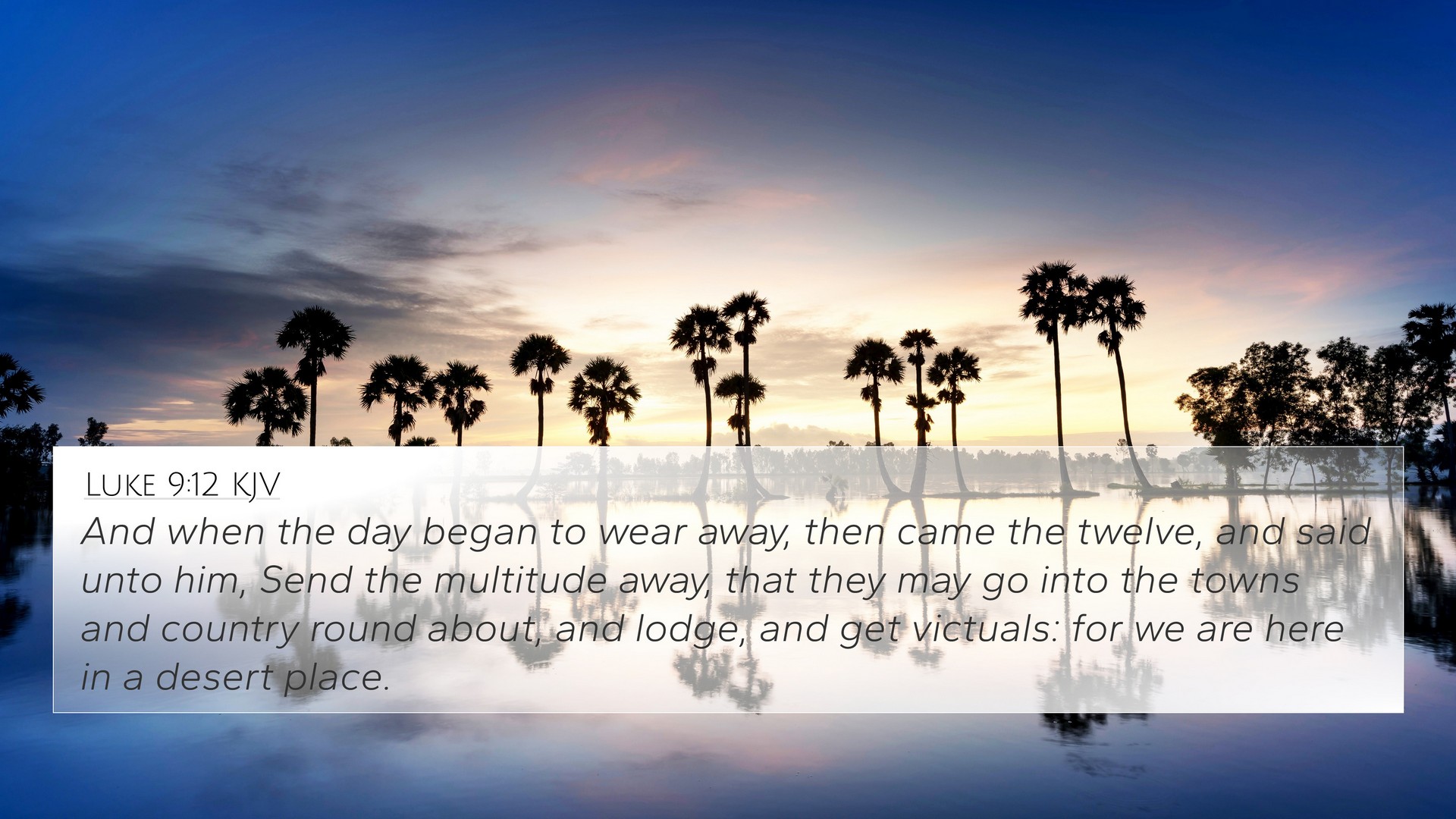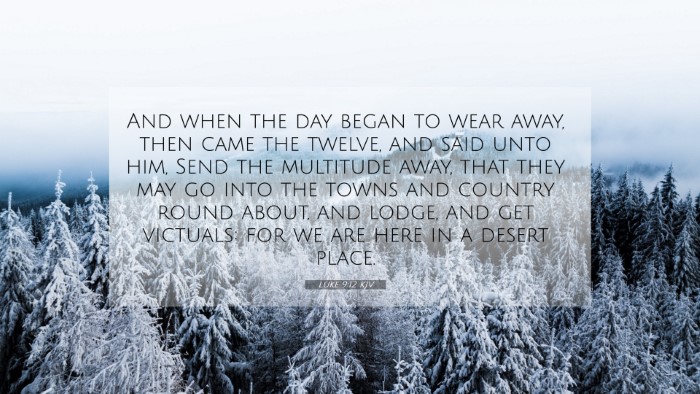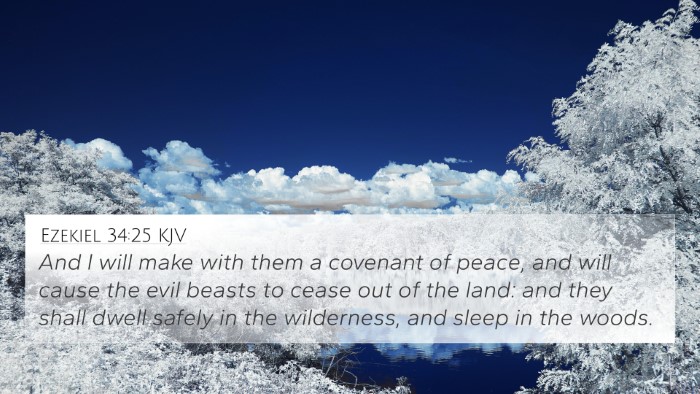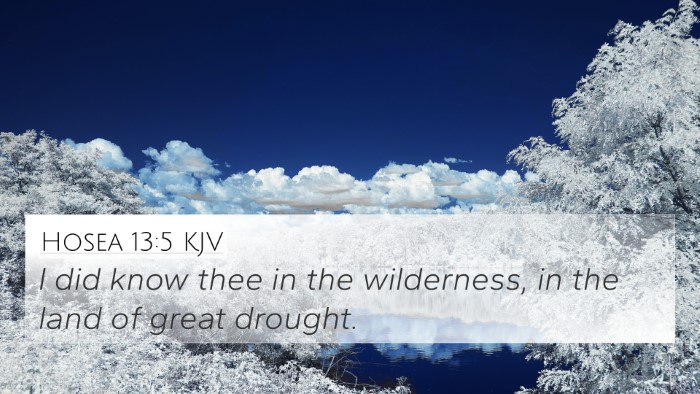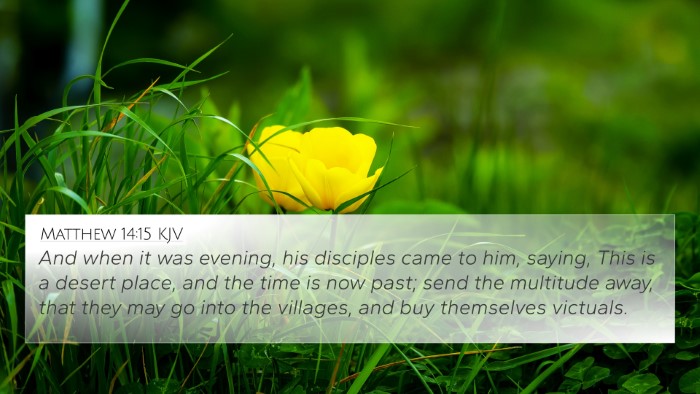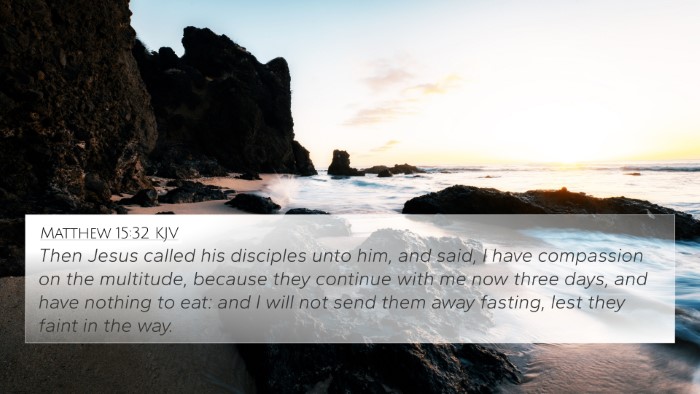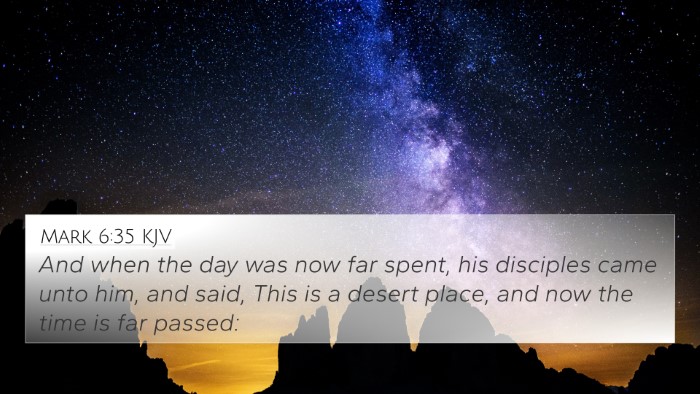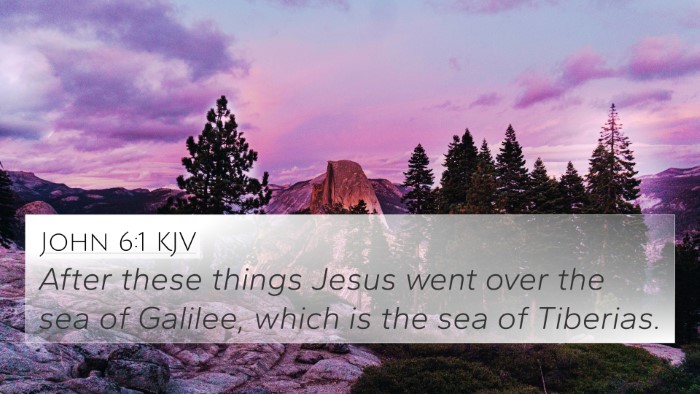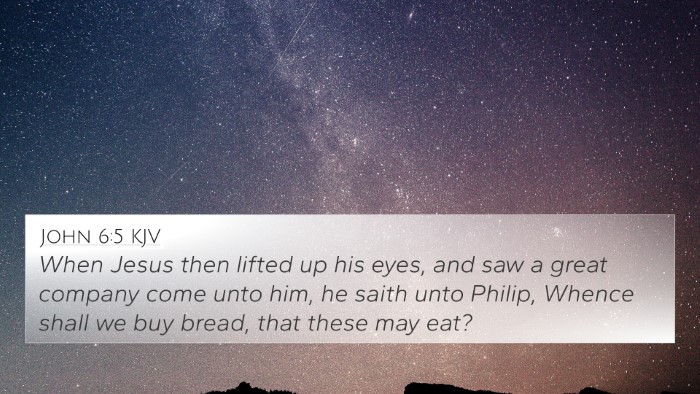Understanding Luke 9:12
Bible Verse: Luke 9:12 - "And when the day began to wear away, then came the twelve and said unto him, Send the multitude away, that they may go into the towns and country round about, and lodge, and get victuals: for we are here in a desert place."
Summary of Luke 9:12
This verse highlights a crucial moment in the ministry of Jesus as His disciples confront a logistical challenge regarding the large crowd that had gathered to listen to Him. The disciples, recognizing the needs of the people for food and shelter, suggest that Jesus send them away to find provisions. The setting suggests a metaphorical and literal wilderness, amplifying the significance of the situation.
Commentary Insights
- Matthew Henry: He emphasizes the compassion of Jesus towards the crowd that followed Him, which contrasts with the desire of the disciples to send them away. Henry notes the importance of caring for the physical needs of others as an expression of Christian love.
- Albert Barnes: Barnes points out that the disciples' suggestion reflects practical concerns. He interprets this as a moment of misunderstanding of Jesus' capabilities, suggesting Christ's power to provide even in desolate circumstances. Barnes sees it as an opportunity for Jesus to perform a miracle.
- Adam Clarke: Clarke describes the situation as a test of faith for the disciples. He notes that this was a time when they should have relied on Jesus to address the needs of the people directly, hinting at their lack of faith and awareness of His divinity. Clarke also reflects on the implications of the multitude’s hunger as a spiritual need for the word of God.
Thematic Connections
Luke 9:12 connects with several important themes throughout the Bible, emphasizing the need for reliance on God’s provision, the importance of nurturing both physical and spiritual needs, and the opportunity for divine intervention in difficult circumstances.
Related Bible Verses
- John 6:5-14: This passage recounts the miracle of the feeding of the five thousand, directly illustrating Jesus’ ability to provide for physical needs.
- Matthew 14:15-21: Similar to Luke 9:12, this account shows the disciples asking Jesus to send people away, leading to another miracle of feeding a multitude.
- Exodus 16:1-15: The provision of manna for the Israelites in the desert serves as a powerful parallel, highlighting God’s ability to sustain His people in desolation.
- Philippians 4:19: "But my God shall supply all your need according to his riches in glory by Christ Jesus," affirms God's promise to supply believers with their needs.
- Matthew 6:26: "Behold the fowls of the air: for they sow not, neither do they reap, nor gather into barns; yet your heavenly Father feedeth them," demonstrates God’s care for all creation.
- Psalm 37:25: "I have been young, and now am old; yet have I not seen the righteous forsaken, nor his seed begging bread," emphasizes God's provision for His people.
- Isaiah 40:11: Reflects God as a shepherd who will lead and provide for His flock, echoing themes of care and sustenance.
Cross-Referencing Insights
Understanding Luke 9:12 through cross-referencing enriches our comprehension of Biblical themes and God’s provision. In examining related scriptures, we can discover deeper insights into the nature of God as a provider and the importance of faith in His ability to sustain.
How to Use Bible Cross-References
Using resources such as a Bible concordance or Bible cross-reference guide can aid in identifying connections between verses like Luke 9:12 and other Biblical texts. Such tools can facilitate a comparative Bible verse analysis, allowing for a more comprehensive understanding of themes across scripture.
Conclusion
Luke 9:12 serves as a key verse for understanding not just the logistical concerns of the disciples but also the spiritual implications of reliance on Jesus' power. By examining this verse alongside cross-references, one can uncover profound insights that speak to God’s provision, the role of Jesus as a shepherd, and the importance of faith in our everyday lives.
